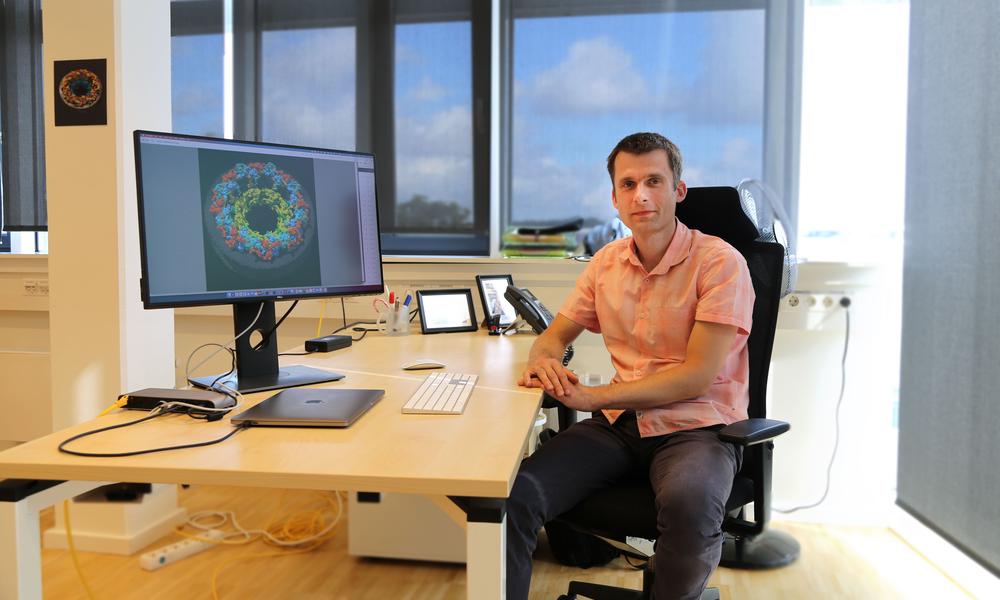Jan Kosinski talks about the Infection Biology transversal theme and how the new EMBL Programme supports his future research.

EMBL launched its new strategic programme 'Molecules to Ecosystems' in 2022. The Infection Biology Transversal Theme within this programme focuses on the biology and mechanisms of infection, as well as diagnostics and treatment of infectious diseases. The theme aims to elucidate the molecular mechanisms pathogens use to invade and proliferate inside host cells, providing new targets for anti-infective drugs. Jan Kosinski, Group Leader at EMBL Hamburg and one of the co-chairs of the Infection Biology theme, explains how this theme will support his work and help establish new collaborations.
Can you tell us about your work under the new Programme?
Our first research direction involves computational modelling of large macromolecular complexes, especially their structure in their cellular context, which is the subject of the Molecular Building Blocks theme. In the second research direction, we study viral infection cycles, which naturally fits the Infection Biology theme. I am also a co-chair of the Infection Biology transversal theme, and I interact with the Data Science and Theory themes.
As a result of the Programme, what do you expect to be doing differently at EMBL in 12 months?
While I will continue my ongoing research on macromolecular complexes and host-pathogen interactions, because of the Programme, I will be more involved in various leadership and organisational matters at EMBL. I will also connect more with the community across sites thanks to the thematic and transversal initiatives.
… in 24 months?
I hope that by that time, we will be already benefiting from the first EMBL's infrastructural and programmatic investments. For example, the demand for computational resources at EMBL, especially GPU, will increase dramatically in the coming months and years. Besides, in the future, I might be thinking about new research directions. The idea of 'Molecules to Ecosystems' makes me wonder how I could contribute to connecting molecular and ecosystem scales in virology through computational modelling.
How do you see your work evolving over the next few years?
Our group is a newcomer to the field of infection biology, and I hope over the next few years, we will establish ourselves in the field. We will continue evolving towards studying structural biology in a cellular context. Our modelling will become more automated and accurate thanks to the revolution started by AlphaFold.
How important do you think collaboration is to achieving your goals?
Very important. For example, we model complexes based on experimental data provided by collaborators. We also started new projects that use techniques we are not experts in ourselves. We can have collaborators from EMBL and externally, especially from our member states, helping us with complementary techniques or teaching us so we can use them ourselves. All my group members collaborate in one way or another with other labs or facilities. We host three EIPOD fellowships, have joint grants with other PIs, and publish collaborative papers.
What is the book or movie you are most likely to recommend to people you meet?
I think every scientist should read the autobiographies of Charles Darwin and Nikola Tesla. Short reads from two minds with completely opposite views on the world and themselves. Read them both during the same week and contrast them with each other. Maybe they can help you define yourself and choose your scientific career path?
At what age did you decide you wanted to be a scientist?
I wanted to be a scientist since as far back as I remember, inspired by my mother and plenty of science books and popular science journals lying around our house.






